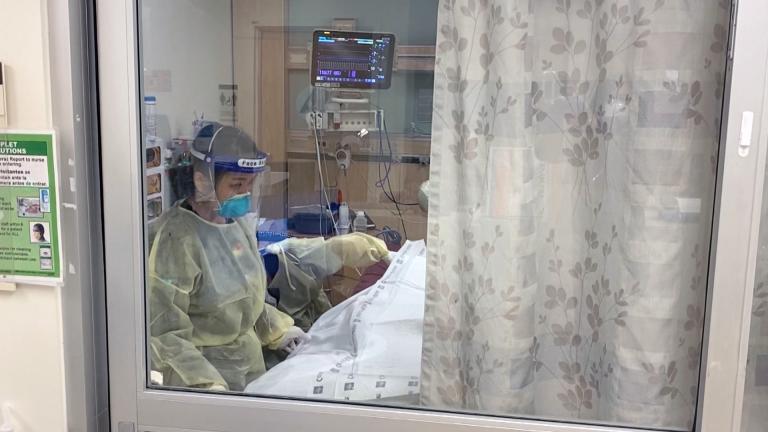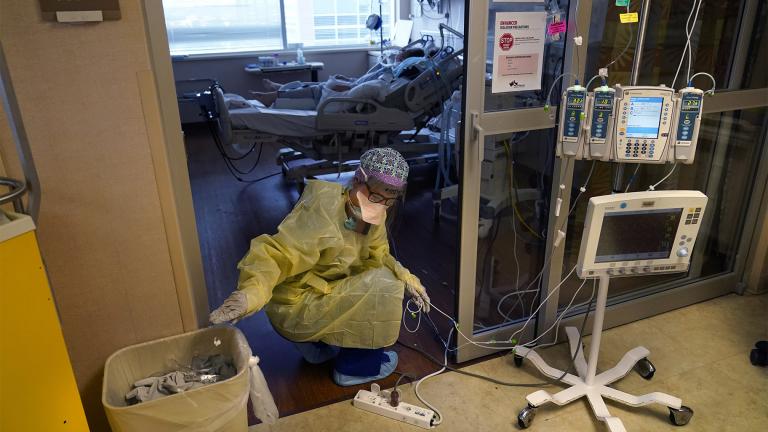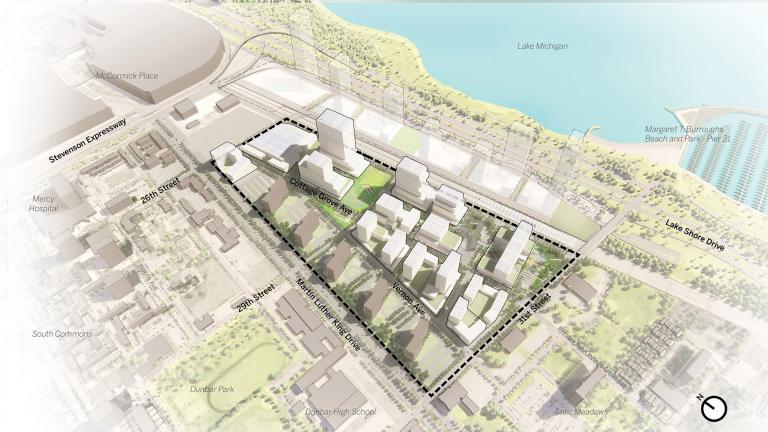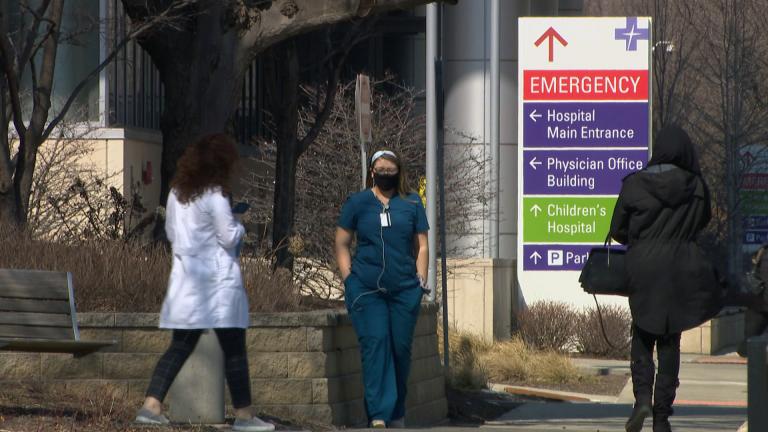Illinois hospitals are once again welcoming non-coronavirus patients — and the revenue they bring.
Nonessential surgeries — often called “elective” — came to a halt in mid-March in preparation for a surge of COVID-19 patients who would take up hospital beds and consume doctors’ attention.
Although Gov. J.B. Pritzker said Illinois will likely not reach its peak of COVID-19 cases until midway through June, the state began permitting hospitals to resume elective surgeries starting Monday.
Most heath systems are slowly taking advantage of that development — such procedures are a major source of income for them.
While often referred to as elective, these aren’t usually truly elective operations like a plastic surgery done for cosmetic reasons.
“What that really means is surgey that’s scheduled,” said AMITA Health’s chief clinical officer Dr. Stuart Marcus. “Examples would be hip replacements, knee replacements, certain cancer surgeries.”
While these procedures may not have been urgent when they were first scheduled, Marcus said some individuals’ situations may have become acute within the past couple of months.
Knee pain? Hip pain? Gallstones?
They may be causing pain by now.
Delays can present their own issues: A potential increase in complications, sometimes a more difficult surgery, perhaps a longer stay in the hospital, a longer recovery time.
Having to put off these surgeries has also hit hospitals’ bottom lines.
In an online event Wednesday with Health News Illinois, CEO Karen Teitelbaum estimated that Sinai Health Systems has taken losses of $10 million a month during the pandemic.
She described it as a “double whammy.”
They’re facing a loss of revenue from surgical procedures while spending more money on staff and personal protective equipment because of the intense care and attention COVID-19 patients require.
Rather than nurse-to-patient ratios of 4-to-1 or 5-to-1, with coronavirus patients, each nurse is responsible for one or two patients.
While hospitals have the state’s green light to resume elective procedures, many are taking it slow. They’re monitoring available bed space, and following Illinois Department of Public Health guidelines that require patients be tested within 72 hours of preoperative procedures and then self-quarantine until it’s time for surgery.
The change also comes with a caveat.
“Elective procedures may be suspended again,” reads a notice on the IDPH website, should there be a decrease in hospital coronavirus testing levels or if there’s a “rapid resurgence or a second wave of COVID-19.”
Follow Amanda Vinicky on Twitter: @AmandaVinicky







